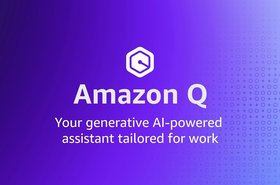The Microsoft Cloud for Sovereignty service is now available across all Azure regions.
The company said governments across the world will now be able to use Microsoft Cloud across more than 60 Azure cloud regions while meeting individual compliance, security, and policy requirements.
Customers will be able to implement policies wherein data and applications must be kept within certain geographical boundaries, and will also have access to sovereign controls to protect and encrypt sensitive data which has been enabled through the sovereign landing zones (an Azure Landing Station with the necessary privacy, security and sovereignty controls) and Azure Confidential Computing.
Azure Confidential Computing handles data in memory in hardware-based trusted environments which prevents unwanted access from other users.
Users of the sovereign cloud will also be able to see when their data is accessed by Microsoft Engineers through the new "Transparency Logs."
The Microsoft Cloud for Sovereignty is already being used by the National Cyber Security Center (NCSC) in the Netherlands. Arnoud van Petersen, CIO & head of IT services at NCSC-NL, said that the solution has enabled its teams to "explore ways to use advanced data and AI capabilities to reduce the time required to interpret signal data and produce advisories from days to minutes, delivering an EU leading rapid response and information sharing in a dynamic cyber threat landscape.”
The municipality of Amsterdam is similarly migrating its on-premise workloads to Microsoft Cloud for Sovereignty.
Customers were first given preview access to the Microsoft Cloud for Sovereignty in October 2023, and plans for the offering were shared in 2022.
In September 2023, Microsoft announced plans to jointly offer a sovereign cloud in the UAE alongside G42, with whom Microsoft has had a partnership since April 2023. The company was working on a sovereign cloud in Singapore in 2021.
Oracle offers an EU Sovereign cloud hosted in Frankfurt, Germany, and Madrid, Spain. November saw Team IM announce plans to create a sovereign cloud in New Zealand using Oracle Alloy.
Google has a similar offering to cater to the European market via partnerships with T-Systems in Germany, Thales in France, and Proximus in Belgium and Luxembourg.
AWS shared plans for a European sovereign cloud region in October 2023.




